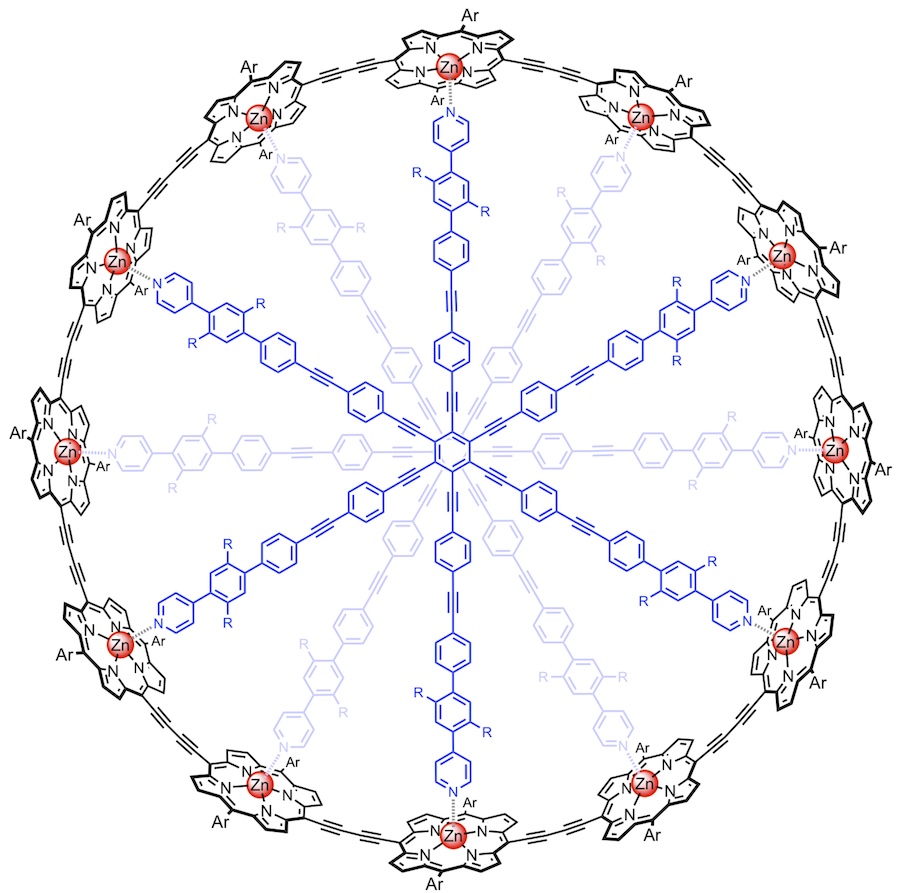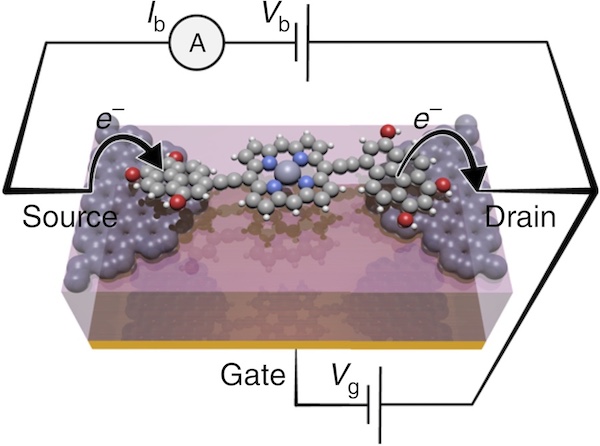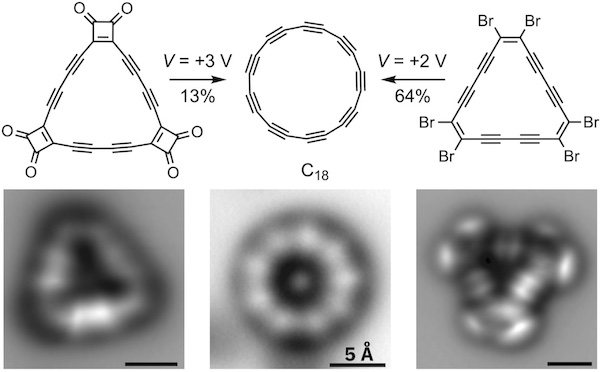Harry Anderson

Harry Anderson FRS
Professor of Chemistry
Can we synthesise organic molecules that behave like metal wires, capable of conducting a current efficiently over many nanometres? Can π-conjugated macrocycles behave like conducting wire rings or electrical circuits? Is there a size limit to aromaticity? How can we construct molecules as memory devices for data storage? How can we create new carbon allotropes? These are some of the questions being addressed by my research group. Our work is directed towards the design and synthesis of functional molecular materials, and the elucidation of structures-property relationships. This is molecular engineering. We are particularly interested in molecules with unusual electronic and optical properties. We use non-covalent self-assembly to control the behaviour of organic semiconductors and dyes, for diverse applications. Our core technique is synthesis, but we also do a wide variety of other types of experiments, from NMR spectroscopy to solid-state physics and theoretical modelling. We explore the properties of our compounds using many different spectroscopic and analytical techniques, and we collaborate closely with physicists, physical chemists and materials scientists.
Projects are being pursued in the following areas:
Porphyrin Nanostructures
We use molecular templates to synthesise π-conjugated nanorings consisting of 5–50 porphyrin units, as well as nanotubes and nanoballs. These are ideal systems for exploring quantum-coherent energy delocalisation and charge circulation, and they mimic the light harvesting arrays used in photosynthesis. We use EPR spectroscopy to test the electronic delocalisation in radical cations and anions of linear and cyclic porphyrin-based molecular wires. Many of these systems exhibit global aromatic ring currents, and they are the largest known aromatic macrocycles. We are also investigating the magnetic properties of molecular nanostructures containing several paramagnetic metal centres.

Single-Molecule Electronic Devices
We are exploring the design and synthesis of molecular wires, transistors and memory devices that exploit the unique behaviour of single molecules, such as quantum interference. Current work involves contacting molecules to electrodes made from gold and graphene. Gold STM break-junction measurements give reliable values for the molecular conductance under ambient conditions. Connecting molecules across graphene nanogaps allows the energy levels to be controlled with a gate electrode. Charge transport can be studied at cryogenic temperatures giving detailed information on the electronic structure.

Polyyne Rotaxanes, Catenanes and Cyclocarbons
We are investigating new approaches to the synthesis of cyclocarbons — a new family of carbon allotropes. So far, cyclocarbons have only been studied in the gas phase or on surfaces at low temperatures. We are exploring catenane formation as a strategy for stabilising cyclocarbons under ambient conditions.

Associated Research Themes:
• Synthesis
• Advanced Functional Materials and Interfaces
• Kinetics, Dynamics and Mechanism
• Theory and Modelling in the Chemical Sciences
• Energy and Sustainable Chemistry
• Innovative Measurement and Photon Science
Harry L. Anderson is a professor of Chemistry at Oxford University. He completed his PhD at the University of Cambridge UK with Professor Jeremy Sanders and carried out postdoctoral work with Professor François Diederich at ETH Zurich, Switzerland. He has led an independent research group in Oxford since 1995. His work is highly interdisciplinary and he has been the Principal Investigator of twelve EPSRC-funded research projects, all of which involved collaboration with scientists in other disciplines. His work has been recognised by the RSC Tilden Prize (2012) and the Izatt-Christensen Award in Macrocyclic and Supramolecular Chemistry (2017). He was elected as a Fellow of the Royal Society of London (FRS) in 2013.




